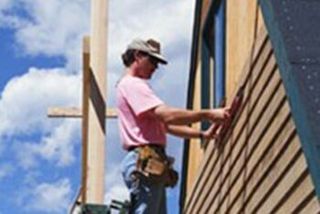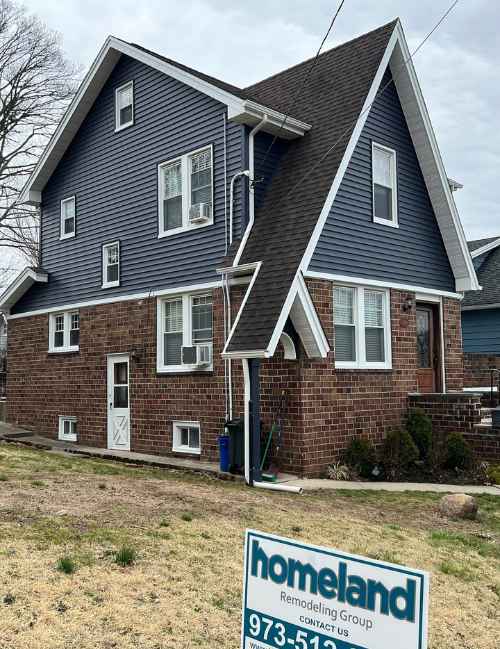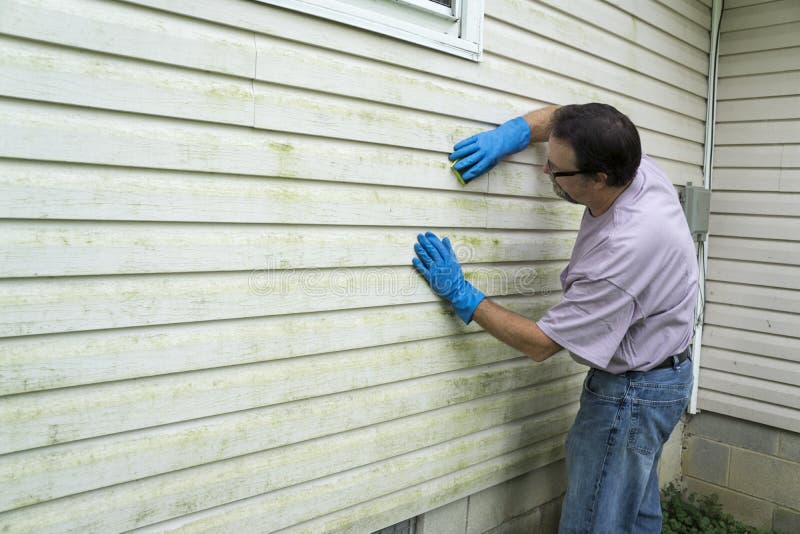Morris Siding Contractor with Years of Expertise in Home Exterior Upgrades
Morris Siding Contractor with Years of Expertise in Home Exterior Upgrades
Blog Article
The Vital Overview to the Different Sorts Of Home Siding and Their One-of-a-kind Advantages
In the realm of home renovation, selecting the appropriate house siding is a critical choice that influences both aesthetic appeal and practical performance. With so numerous options to take into consideration, which siding material really stands out for your details job?
Timber Home Siding
Wood house siding, a popular selection for domestic exteriors, provides a timeless visual that integrates natural beauty with architectural stability. This exterior siding material is readily available in different styles, including clapboard, tiles, and board-and-batten, permitting house owners to personalize their appearance to match their design preferences. Wood siding is typically crafted from durable types such as cedar, redwood, or yearn, which are known for their resilience and capacity to stand up to environmental stressors.
Among the main benefits of timber exterior siding is its superb insulation residential properties, which can add to power effectiveness and lower heating costs. Furthermore, wood siding is naturally degradable, making it an eco-friendly option when sourced sustainably. Routine maintenance, including painting or discoloration, can prolong its life expectancy and enhance its look, allowing home owners to protect the all-natural beauty of the wood.
Nonetheless, potential disadvantages include sensitivity to insects, rot, and weather damages, requiring sufficient treatment and upkeep - morris siding contractor. In spite of these issues, when effectively looked after, timber house siding can supply a long lasting and lovely solution that enhances the personality of a home while offering a cozy, inviting atmosphere

Vinyl Exterior Siding
Vinyl home siding has emerged as a leading choice for homeowners seeking a low-maintenance outside choice that integrates longevity and cost. This flexible material is crafted from polyvinyl chloride (PVC), making it resistant to numerous weather, including wetness and UV rays. Therefore, vinyl house siding does not warp, rot, or fade, making certain durable visual allure.
Among the main benefits of plastic home siding is its extensive series of shades and styles, permitting house owners to attain the desired search for their home without the demand for frequent repainting. In addition, vinyl siding is simple to mount, which can substantially minimize labor expenses during building or remodelling tasks.
Plastic exterior siding additionally adds to energy efficiency. Lots of alternatives attribute insulation backing, which enhances thermal efficiency, assisting to maintain comfy interior temperature levels and potentially decreasing power expenses. Its smooth surface area facilitates easy cleansing, needing just routine washing with a yard pipe to eliminate dust and debris.
Fiber Cement Home Siding
Fiber cement house siding has actually obtained traction amongst home owners and home builders alike due to its impressive combination of sturdiness and aesthetic versatility. Made up of a blend of sand, cement, and cellulose fibers, this exterior siding option is engineered to stand up to severe climate condition, including high winds, hefty rain, and temperature changes, making it a long-lasting option for property exteriors.

One of the key benefits of fiber concrete house siding is its resistance to parasites, such as termites, and its non-combustible nature, offering enhanced fire safety and security. morris siding contractor. Additionally, it is offered in a wide array of colors, styles, and appearances, allowing property owners to achieve their wanted aesthetic without sacrificing performance
Another advantage is its low upkeep needs; fiber cement home siding usually calls for paint or staining every 5-10 years, which is less frequent than other products. Moreover, its longevity adds to a reduced general expense of possession, as it decreases the demand for regular repair services or substitutes.
Ultimately, fiber concrete home siding represents a superb financial investment for those looking for a durable, appealing, and functional exterior alternative, combining both kind and feature to improve the home's curb appeal.
Metal Siding
The allure of steel house siding exists in its robust toughness and contemporary aesthetic appeal, making it a preferred choice for modern style. Available in products such as aluminum and steel, metal house siding offers an array of colors and finishes, allowing homeowners to achieve a customized look that complements their layout vision.

Energy performance is an additional substantial benefit, as many metal home siding items are made with insulation choices that help control interior temperature levels. This can lead to decreased power expenses with time. Additionally, steel home siding is typically recyclable, making it an environmentally friendly selection for sustainability-minded house owners.
The installment procedure for steel exterior siding can be reasonably simple, causing a quicker turn-around time for building jobs. Generally, steel look at here now house siding integrates capability and design, making it a useful option for those looking for a enduring and visually appealing outside finish.
Block and Rock Exterior Siding
Brick and rock home siding stands apart as a classic option that improves the aesthetic charm of any kind of home. Known for their resilience and low upkeep, these materials offer a phenomenal return on investment while elevating the building's aesthetic charm. Available in numerous colors, textures, and patterns, block and rock can be customized to fit diverse architectural styles, from typical to contemporary.
One of the primary advantages of block and rock exterior siding is their energy effectiveness. Both materials have natural insulating residential or commercial properties that aid manage indoor temperature levels, potentially reducing heating & cooling costs. In addition, they offer superior fire resistance compared to various other exterior siding choices, adding to enhanced security.
Another advantage is their longevity. Block and stone can last for decades, frequently calling for minimal upkeep beyond occasional cleansing. Unlike wood siding, they are resistant to parasites and rot, ensuring a durable outside that stands that site up to the elements.
Final Thought
In summary, the selection of house siding substantially influences a home's visual allure, power efficiency, and upkeep requirements. Each sort of siding-- whether timber, plastic, fiber cement, metal, or block and stone-- supplies special advantages customized to various home owner choices and ecological problems. Recognizing these choices makes it possible for notified choices that boost both the resilience and aesthetic beauty of residential exteriors. Eventually, choosing the best siding is crucial for accomplishing a balance between performance and style in domestic architecture.
One of the main advantages of wood siding is its outstanding insulation residential properties, which can contribute to energy performance and lower home heating prices. Additionally, timber home siding is naturally degradable, making it an environmentally friendly option when sourced sustainably.One of the primary benefits of metal house siding is its resistance to different environmental variables.Energy efficiency is an additional internet substantial benefit, as lots of steel siding items are designed with insulation alternatives that help regulate indoor temperatures. Each kind of exterior siding-- whether timber, vinyl, fiber metal, block, or concrete and rock-- provides special benefits tailored to various property owner preferences and environmental problems.
Report this page